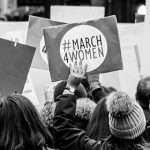 Second Meeting of the International Standing Working Group on Medialization and Empowerment (Web); by German Historical Institute London
Second Meeting of the International Standing Working Group on Medialization and Empowerment (Web); by German Historical Institute London
Time: 10.-12.12.2020
Venue: virtual space, via London
Programme (PDF)
How have feminist stories been recorded historically? Where can we find them in the archive? And how does this shape historical scholarship on women’s empowerment?
Since the 1960s, feminist historians have sought to re-write women into history, recovering their voices and restoring them within a discipline that continues to prioritize the actions of men. As Karen Offen has highlighted, the history of feminism is political history: it is “a more expansive history of politics that incorporates women and analyzes gender politics” (2011). And yet, the task of recovering women’s voices and feminist activism is complicated by normative forces that shape our access to women’s histories. Typical sites of historical research – the mass media and the archive – are built upon and reflect systems of imperial and patriarchal power. By collecting, cataloguing, and structuring knowledge, both the archive and the media have pacified and obscured women’s political engagement.
At the same time, the emergence of grassroot feminist media and archives may offer the possibility of challenging this relationship. To what extent can feminist historians question normative forces when they rely on archival and media sources? Do alternative archives and media really allow historians access to different stories? Or do these counterpublic spaces also conform to the conditions and norms imposed by the mass media and the archive? And how have changes in the media and archiving over time shaped historical work? Read more … (Web)
Conveners: Christina von Hodenberg and Jane Freeland (German Historical Institute London)
Partners: Max Weber Foundation India Branch Office, German Historical Institute Washington, German Historical Institute Rome and Orient Institute Beirut
Salon 21
Ankündigungsweblog für Frauen- und Geschlechtergeschichte
